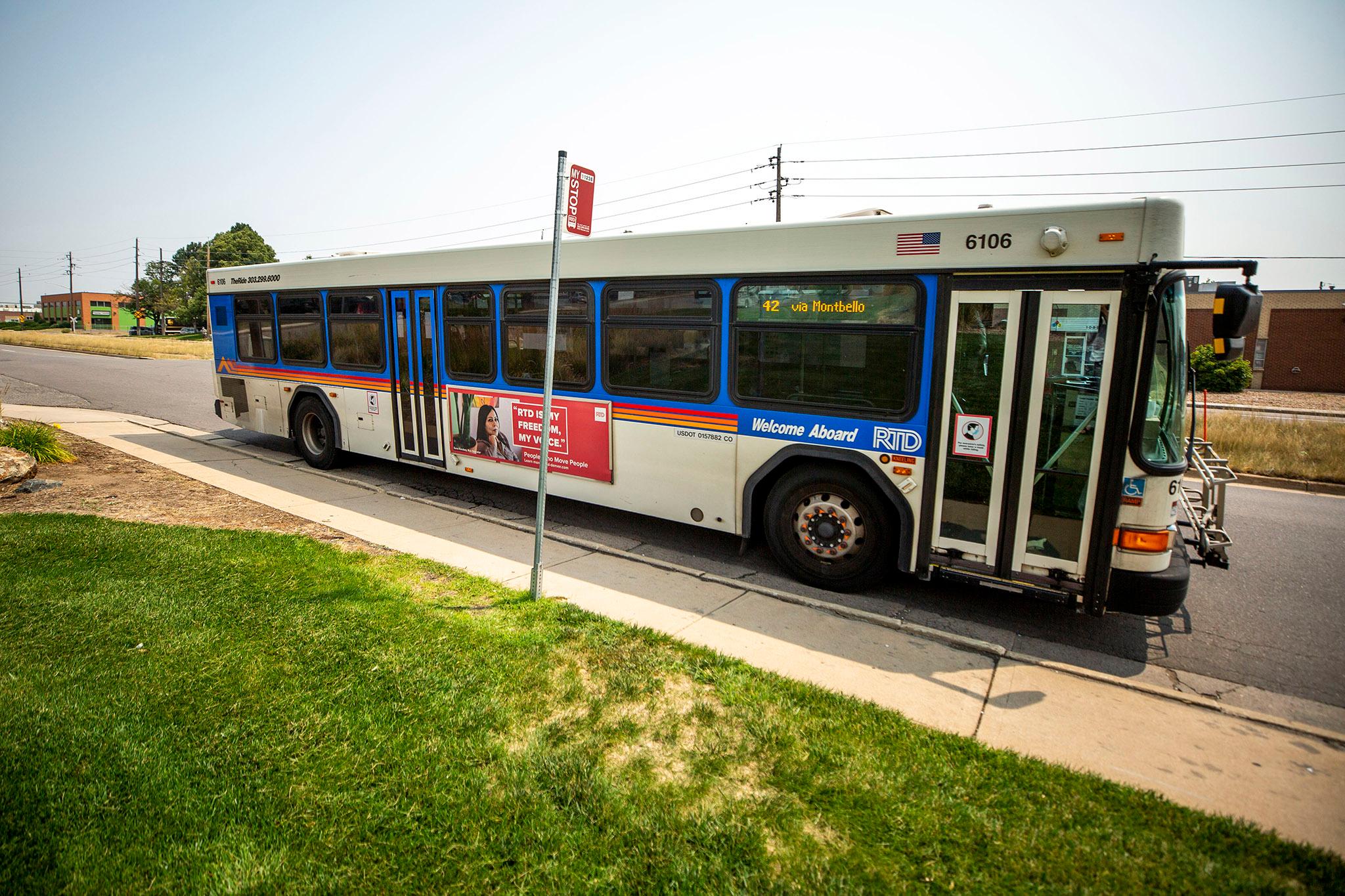
The District I director represents Longmont, Leyner, Lafayette and Broomfield. You can find out more about Erik Davidson here.
What's your elevator pitch for why voters should choose you?
Erik Davidson: I have been honored to serve on the Board since Jan 2021 during a dynamic time in history. As current Chair of Finance, I am proud that this Board and new RTD leadership has financially stabilized RTD. If elected, I will continue to work diligently to ensure that RTD will be here to serve the needs of its customers now and well into the future.
What is the biggest problem facing RTD right now, and what would you do to fix it?
Davidson: RTD’s biggest long-term problem is its 2300+ square mile service area that is one of the largest in the country for one agency and is growing in disparate ways with varying densities. RTD’s future must include more local partnerships and regional collaboration. RTD can leverage its now stronger financial position to work closely with local partners to address the disparate needs of the region.
As it emerges from the pandemic, RTD has prioritized transit service aimed at low-income and minority communities. Some once-popular routes that served wealthy areas remain suspended. Do you agree with this approach?
Davidson: Yes.
Explain your reasoning.
Davidson: Many RTD customers rely on transit to access all our region has to offer. Togetherness is resilience, and RTD offers access to jobs, schools, healthcare, houses of worship, shopping, and entertainment. I am committed to ensuring transit in our region prioritizes access. It is important to remember that some still-suspended routes were providing access to customers in need, so we have work to do.
What should RTD do to make passengers feel safer?
Davidson: RTD must protect its customers by proactively deterring unwelcome activities at stations – for example, finish the safety improvements to DUS. Additionally, RTD can increase presence of trained safety and security personnel, which must include a mental health component. Furthermore, RTD can continue to partner with other jurisdictions and community groups to achieve our safety and security goals.
Do you use public transit in your life now?
Davidson: Yes.
If yes, how often? What do you use it for?
If not, why not?
Davidson: At home in Colorado, I mainly use public transit to commute regionally. I use transit to travel to co-working offices, to work meetings, to RTD locations, to events, etc. As a commuter working several jobs, I am keenly aware of how the pandemic has changed commuter travel patterns. I personally commute less frequently during rush hour, but rather during off-peak hours for meetings and events.
Should RTD encourage cities to build more dense development that could yield higher ridership?
Davidson: Yes.
Explain your reasoning.
Davidson: Land use, transit financial sustainability, and ridership are inextricably linked. I am proud of the Equitable Transit Oriented Development policy and program RTD launched last year to increase ridership through transit-supportive land use, generate more revenue, encourage affordable housing, and enhance community relationships. RTD needs to partner with cities to broaden & expand similar efforts.
RTD's short-term financial picture has stabilized, but there are no plans to expand service in the foreseeable future. Should RTD ask voters for a tax increase to enable that?
Davidson: No.
Explain your reasoning.
Davidson: This is not yet a ‘yes’ or ‘no’ question. We need a regional discussion on all ways to increase and diversify the sources of our collective investment in transit. Also, RTD should expand its partnerships to explore new ways to pool funding together with local governments. Meanwhile, as Chair of Finance, it is my job to be a diligent steward of current taxpayer investments.
Should state government contribute more funding to RTD in order to expand service?
Davidson: Yes.
Explain your reasoning.
Davidson: The Front Range continues to grow rapidly. We must enhance and diversify our investments in transit to properly scale our transit service. Colorado can look to other systems globally for inspiration, but we also have an opportunity to be innovative leaders. SB21-260 contains examples of additional sources of funding. We just need to unite and choose to make public transit a real priority.
Should RTD continue to save money toward the Boulder-Longmont train, and other unfinished FasTracks projects?
Davidson: Yes.
Explain your reasoning.
Davidson: We must be innovative if we are to overcome the flawed financial plan of 18 years ago that led to the unfinished state of FasTracks. Voters approved FasTracks, so RTD must preserve their investments while we identify potential paths forward. One path forward is partnership, which is why I advocated for the cooperation agreement between RTD, CDOT, and the Front Range Passenger Rail District.
Should RTD reduce or eliminate its fares?
Davidson: Yes.
Explain your reasoning.
Davidson: RTD recently launched a systemwide fare study and equity analysis. I strongly support our study goals to improve equity, affordability, and simplicity. How RTD restructures fares must be directly informed by RTD customers. RTD collected feedback in community meetings this year. Now, our team is using that feedback to draft fare structure concepts that satisfy our goals.
Should RTD do more to better meet the needs of the disability community?
Davidson: Yes.
Explain your reasoning.
Davidson: I strongly support policies to maintain and expand Access-a-Ride service. Where some fixed-route service was recently eliminated, we must ensure these areas do not lose Access-a-Ride service. Again, we must also expand partnerships. I am proud of Broomfield for providing Easy Ride service to adults with disabilities. RTD needs to work closely with local partners operating services such as this.








